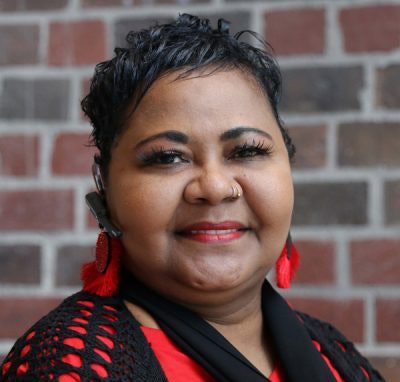Who knows how long schools will be closed, but every day counts when it comes to addressing academic achievement gaps. Every day, I am so very concerned about Black students falling further behind their White counterparts. This angst increases during the summer when achievement disparities increase drastically. While those with the fiscal means and educational clout are pushing their children forward, far too often, Black children are falling backwards or behind. The reality is that gaps can be and are gulfs, sucking in our Black children.
During the regular school year, miseducation is all too common, as Dr. Carter G. Woodson wrote about in the early 1900s. Some 80-85% of educators are White. Too few educators – teachers, administrators, and policy makers – have been challenged and required to be accountable, anti-racist and culturally competent. Further, there are not enough Black teachers and other education professionals, such as counselors and psychologists, to serve as cultural brokers and advocates to undo the damage associated with miseducation.
So, this is the time – urgent time – for Black families to aggressively and with conviction take charge of academics at home. Families are, indeed, the first and forever teachers. This pandemic is an unwelcome, awful, and alarming reminder of how academic lives matter too.
 Dr. Donna Y. Ford
Dr. Donna Y. FordOn this note, I share two resources with a brief overview to help promote critical thinking and cultural relevance at home. An education degree is not required to implement what I am sharing here to support and advocate for Black families.
Here is one overview of Bloom’s Taxonomy: The six levels are divided into two categories of thinking – low and high. View the lower three levels as the basics and a place to start; but not the destiny. To help close achievement gaps/gulfs, as Black families, we must know how to teach to the highest three levels – analyze, evaluate, and create.
The following is a very short list of suggestions to promote rigor—critical and creativity thinking.
- Be mindful of the terms you use. Talk up to children (e.g., replace think with cogitate, ponder, etc.). Use a thesaurus for assistance. Get a copy of a Bloom’s wheel that can be found on the internet to help with terminology and projects/activities at each level
- Decrease the use of closed-ended questions that require, for example, yes or no and true or false responses. These types of questions are not rigorous
- Ask open-ended questions (e.g., What if…? Why not…? What would you do if…?)
- Ask children to explain their responses to check for understanding/comprehension; this is an indication that you can move forward with challenge
- Have children take a position on an issue and support/defend it with outside resources, not just their opinion
- Let children use their imagination – think outside the box and take risks; many advances have been made with thinking outside the box
- Use humor when it reinforces the lesson plan; jokes and puns (e.g. riddles and cartoons) can be used to engage the imagination
- Conduct activities that are tactile and kinesthetic – get your children physically involved
- Conduct mini-studies on a topic of issue with family members, and discuss the results with your child taking the lead as the researcher
The classic model for infusing multicultural content into lesson plans is by Dr. James A. Banks, whom I herald as the father of multicultural curriculum. Banks’ model is about relevance and countering miseducation. The four levels or approaches, from lowest to highest, are contributions, additive, transformation, and social action.
Contributions Level – avoid focusing solely and extensively on the four Fs – food, fun, fashion, and folklore. With your children, humanize our Black people by sharing why we eat certain foods (e.g., history, social injustices, geography, economics), hold certain celebrations (e.g., religion), dress in certain ways, etc.
Additive Level – Black History month is not just during February and about slavery. Our history is so rich and long; thus, every month (day) lends itself to enlightening and empowering our children. We can’t rely on educators to do this, as already stated. Introduce our children to Black people who have been omitted from school curriculum because they were vocal and unapologetically angry and outraged about racial injustices (e.g., Malcolm X, W.E.B. DuBois).
Transformation Level — Help your children to critique what they are learning in at least two ways: (a) viewing multiple perspectives and (b) viewing alternative perspectives. As with the highest levels of Bloom’s Taxonomy, this promotes critical and creative thinking. I cannot emphasize enough that critical and creative thinking improve academic achievement and can help our children to be more academically competitive.
Social Action Level – With this pandemic virus in mind, now is an ideal time to work with children to think about solving social ills. In their own way and based on context, what can they suggest and/or do to effect change. Doing so gives our children some semblance of empowerment; we must help them to avoid bleak feelings of hopelessness. Writing letters to decision makers, helping elderly neighbors, creating poems, short stories, books, and so much more are just a few examples. Reading books about Black children in their age range can be invaluable — sending the message that children can and do have impact.
Undeniably, a mind is a terrible thing to waste (United Negro College Fund). We must not let our children fall further behind their classmates. As Black families, we must use this crisis to keep pressing on. #BlackFamiliesMatters #RigorAtHome #MulticulturalEducationAtHome
Dr. Donna Y. Ford is a Distinguished Professor of Education and Human Ecology and Kirwan Institute Faculty Affiliate at The Ohio State University’s College of Education and Human Ecology. You can follow her on Twitter @DrDYFord



















